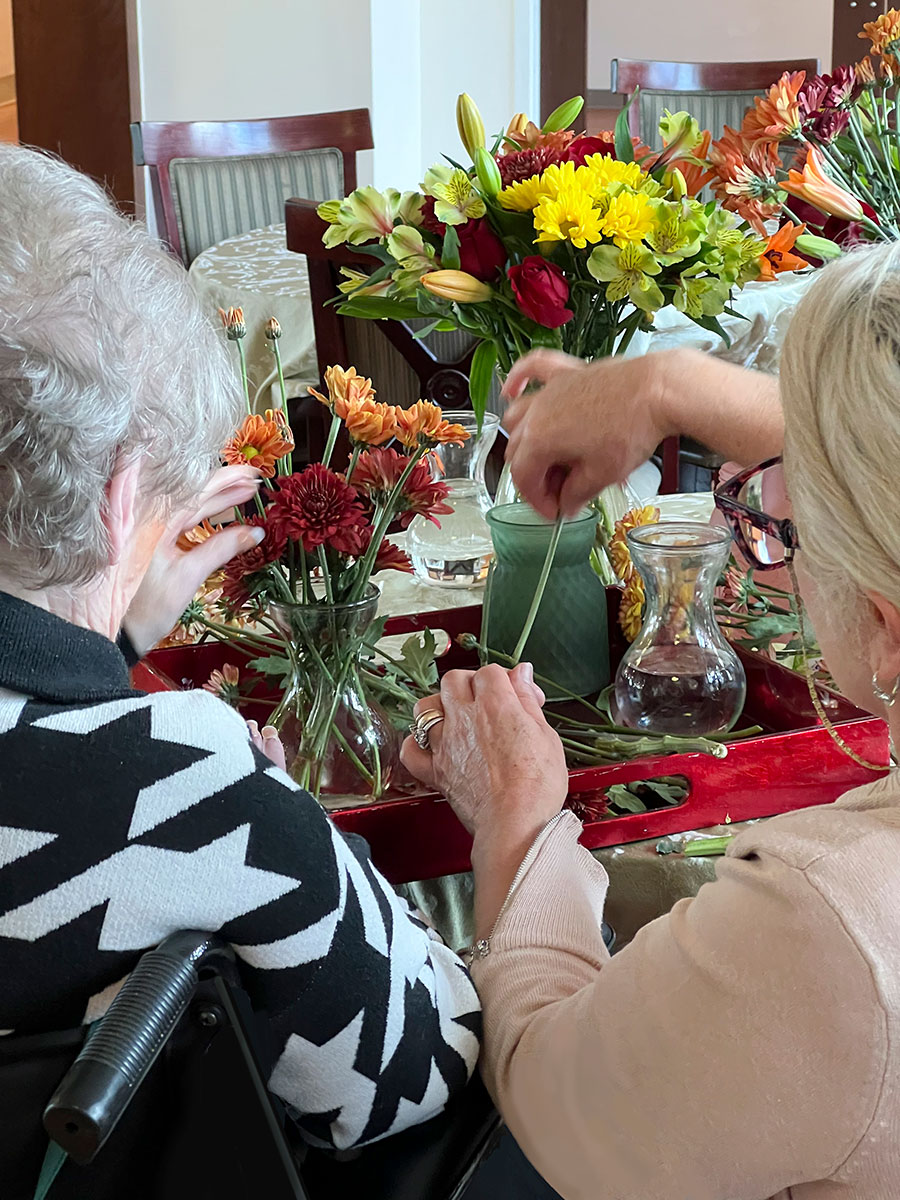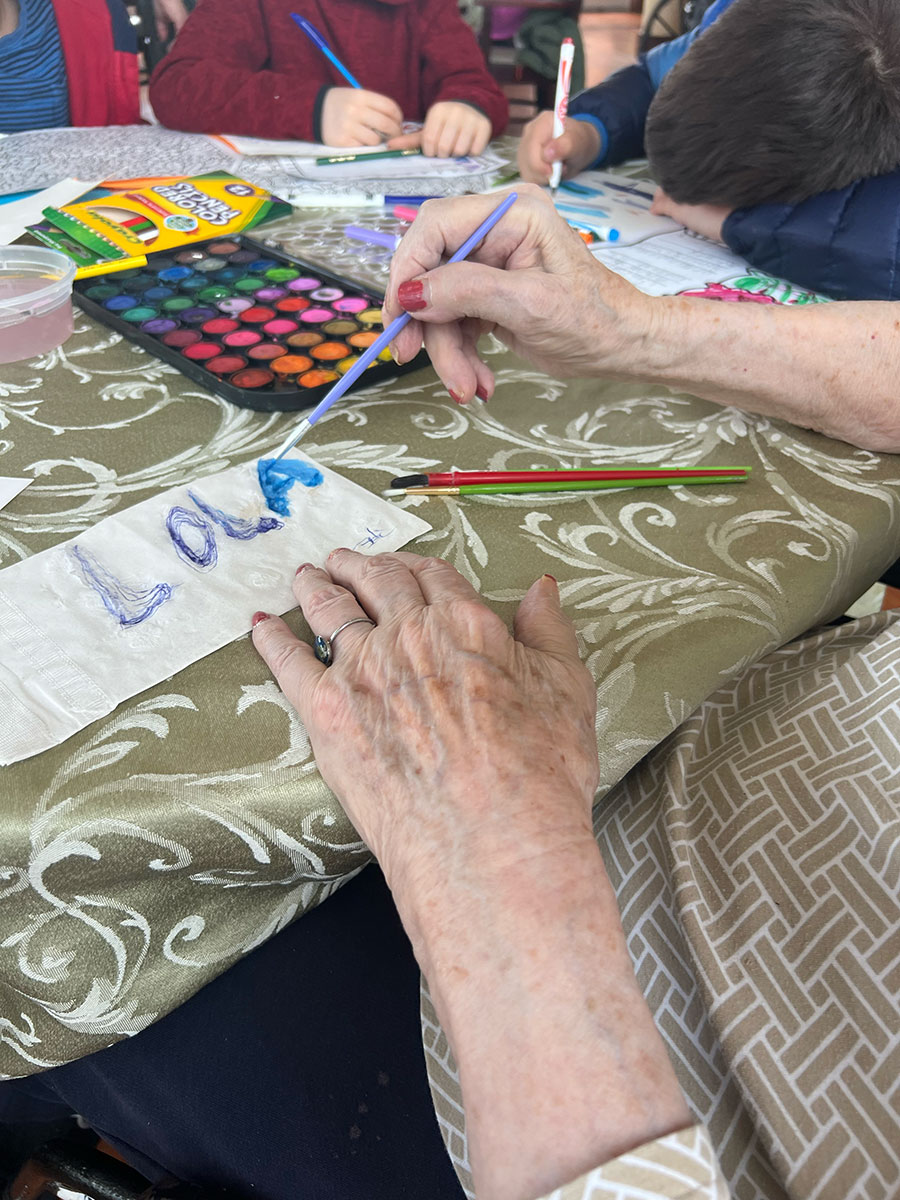Memory Care
Specialized Care
Memory care at Hattie Ide Chaffee Home addresses the unique and specific needs of residents with dementia, Alzheimer’s and other related memory-loss in an integrated environment, allowing residents to function at their highest level possible, together with people with no cognitive impairments. The Home provides desirable staffing, an environment that is adaptable to changing behaviors, continuity of caregiver assignments, tailored activities, and physical space which allows for tranquility and simplicity. Our goal is to provide specific behavioral approaches and therapeutic activities to care for residents in their special care environment. The focus is on our residents’ capabilities and not on their limitations. Hattie Ide Chaffee Home’s memory care provides a caring, supportive, nurturing and safe environment, which allows our residents to reach their highest potential. Quality of care, including quality of life, is our top priority.
Commonly Asked Questions
What are the Early Signs of Dementia?
- Memory loss.
- Difficulty planning or solving problems.
- Difficulty doing familiar tasks.
- Being confused about time or place.
- Challenges understanding visual information.
- Problems speaking or writing.
- Misplacing things.
- Poor judgment or decision-making.
What's the Difference Between Dementia and Alzheimer's Disease?
- A decline in memory
- Changes in thinking skills
- Poor judgment and reasoning skills
- Decreased focus and attention
- Changes in language and communication skills
Alzheimer’s disease is one type of dementia, but it’s not the only one. There are many different types and causes of dementia, including:
- Lewy body dementia
- Frontotemporal dementia
- Vascular dementia
- Parkinson’s disease dementia
- Creutzfeldt-Jakob disease
- Huntington’s disease
- Mixed dementia
Alzheimer’s disease, however, is the most well-known and common form of dementia but not everyone with dementia has Alzheimer’s disease.
Source: Jonathan Graff-Radford, M.D, Mayo Clinic
How do you Talk With a Person Who Has Alzheimer's Disease or Other Forms of Dementia?
- Don’t be personally offended if the person who has dementia becomes paranoid or accusatory
- Do encourage reminiscing if it’s enjoyable for your loved one
- Do ignore offensive language and try to redirect attention if the person with dementia begins using bad language
- Do keep it simple by asking one question or giving one direction at a time if your loved one does not remember how to perform activities of daily living
- Do speak in a normal tone of voice at a normal volume
- Don’t stop trying
- Don’t use negative statements
- Do use their first name to get their attention
- Do your best to eliminate any distractions such as TV or radio
Tips For Communicating With Someone Affected by Dementia
- Avoid criticizing or correcting and repeat what they said if something needs to be clarified.
- Do not interrupt the person speaking.
- Do not talk about your loved one like they are not in the room. Always assume he or she can understand what you are saying.
- Focus on feelings rather than facts and be aware of body language and tone of voice.
- Let them know it’s okay if they have trouble finding their words.
- Show respect in your speech by avoiding baby talk.
- Stay calm even if the conversation becomes frustrating.
- Even if a loved one has lost most of their verbal skills, remember that people with Dementia can understand kind touch, laughter and smiles.
(Source: alzheimers.net)
We're Here For You
Please contact us using the form below. Or you may call us if you have any questions or wish to schedule a private tour of our home. The important thing is to start the conversation and for you to learn all you can about Hattie Ide Chaffee Home. We are here to help you find the answers to your questions and to provide you with the information you seek.



